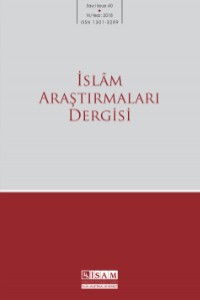Öz
In his book Urban Autonomy in Medieval Islam, Fukuzo Amabe, a Japanese scholar of the medieval Middle East, offers a new perspective on the semi-autonomous administration of medieval Islamic cities. He analyzes civic movements and riots in Baghdad, Damascus, Aleppo, Cordoba, Toledo, Valencia and Tunis using Max Weber’s concept of autonomous governments in Europe. With the introduction of Marxist thought, a new inclination to define the features of European countries and towns in terms of their economic dynamics emerged. According to this perspective, the social arrangements of city dwellers are to be viewed as determined by the mode of production, while the city and urban space itself are to be viewed as shaped by purely financial determinants. Max Weber’s idealization of the European city shifts the discussion one step further and relates economic and social conditions of cities with their administrations.
Anahtar Kelimeler
Kaynakça
- AMABE, Fukuzo, Urban Autonomy in Medieval Islam: Damascus, Aleppo, Cordoba, Toledo, Valencia and Tunis, Leiden: Brill, 2017.
Öz
In his book Urban Autonomy in Medieval Islam, Fukuzo Amabe, a Japanese scholar of the medieval Middle East, offers a new perspective on the semi-autonomous administration of medieval Islamic cities. He analyzes civic movements and riots in Baghdad, Damascus, Aleppo, Cordoba, Toledo, Valencia and Tunis using Max Weber’s concept of autonomous governments in Europe. With the introduction of Marxist thought, a new inclination to define the features of European countries and towns in terms of their economic dynamics emerged. According to this perspective, the social arrangements of city dwellers are to be viewed as determined by the mode of production, while the city and urban space itself are to be viewed as shaped by purely financial determinants. Max Weber’s idealization of the European city shifts the discussion one step further and relates economic and social conditions of cities with their administrations.
Kaynakça
- AMABE, Fukuzo, Urban Autonomy in Medieval Islam: Damascus, Aleppo, Cordoba, Toledo, Valencia and Tunis, Leiden: Brill, 2017.
Ayrıntılar
| Birincil Dil | İngilizce |
|---|---|
| Konular | Din Araştırmaları |
| Bölüm | Kitâbiyât |
| Yazarlar | |
| Yayımlanma Tarihi | 30 Eylül 2018 |
| Yayımlandığı Sayı | Yıl 2018 Sayı: 40 |


